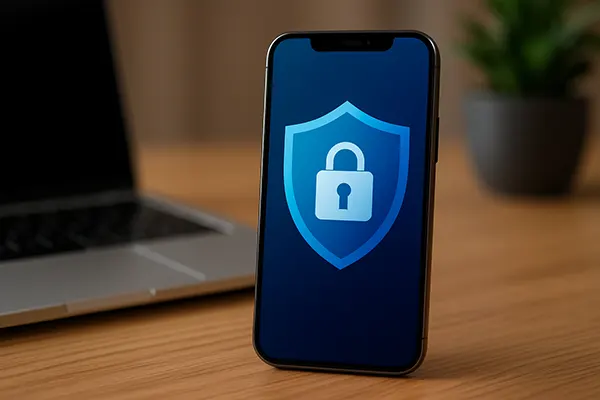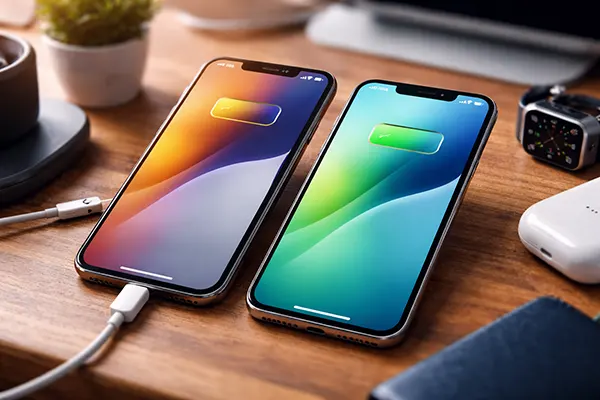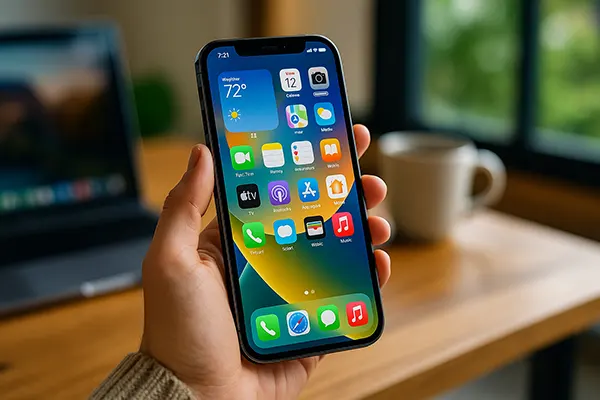iOS 18 Privacy Rundown: New iPhone Security Features in 2025

Apple continues to evolve its privacy standards with each iOS release. In June 2025, iOS 18 was officially presented, showcasing a renewed focus on security and user data control. The new features are not just cosmetic—they reflect a deeper philosophy of transparency and autonomy. Here’s an expert look at the most important changes to privacy on iPhones this year.
Advanced App Privacy Controls in iOS 18
With iOS 18, Apple introduced a revamped App Privacy Dashboard that gives users precise oversight into how their data is being accessed. This dashboard now includes detailed logs showing which apps accessed location, microphone, and camera data—and when. It also displays background activity, enabling users to revoke or fine-tune permissions effortlessly.
Another vital improvement is the new “Temporary Permission” feature. Users can grant apps access to sensitive data such as photos or location only for a specific task or short time, after which the permission automatically expires. This limits unnecessary background access and supports just-in-time privacy protection.
Furthermore, the system now prompts users with real-time indicators when apps access system resources, not just for the camera or microphone but also for clipboard, contacts, or motion sensors. This fosters more trust and informed consent between users and their applications.
Third-Party SDK Transparency
Apple has intensified its scrutiny of third-party SDKs (software development kits). App developers are now required to disclose exactly which SDKs they use and what data those SDKs collect. This information is visible on each app’s page in the App Store under a new “Third-Party Integrations” section.
iOS 18 also implements runtime checks that prevent apps from using unverified SDKs or those that fail Apple’s privacy standards. If an SDK attempts to collect more data than declared, the system blocks the access and notifies the user. This aims to curb hidden tracking mechanisms embedded in otherwise legitimate apps.
These SDK restrictions mark a notable push from Apple to extend its privacy philosophy beyond the OS level and into the app ecosystem itself, effectively protecting users even from third-party behaviours outside Apple’s direct control.
Private Cloud Compute and On-Device Intelligence
Apple has introduced “Private Cloud Compute” in iOS 18, an innovative approach that combines device-based processing with secure server-side AI without compromising user data. When a task exceeds the computational capabilities of an iPhone, it is offloaded to a cloud environment—but with strict privacy measures.
These cloud servers are encrypted end-to-end and designed with a zero-knowledge architecture, meaning Apple cannot access any of the data being processed. No data is stored after the session, and independent audits verify the system’s integrity. This enables features like advanced language models or photo enhancements to run without data exposure.
The update also boosts on-device intelligence. Features like personalisation of Siri, keyboard predictions, and content recommendations are now handled locally using the Neural Engine. This significantly reduces the need to transmit data externally, maintaining privacy while enhancing performance.
Improved Mail Privacy Protection
Mail Privacy Protection has been reinforced in iOS 18. In addition to hiding IP addresses and preventing senders from knowing when emails are opened, Apple now introduces automatic detection and suppression of tracking pixels and cloaked redirects in emails.
Users receive notifications if suspicious trackers are detected in an email, and they can choose to block these senders permanently. This ensures marketing or phishing attempts using email-based tracking lose much of their effectiveness.
The Mail app also provides summaries of email tracking attempts and allows users to view and manage privacy reports directly from the inbox, offering full transparency about threats.

Facial ID Privacy and Account Safeguards
Face ID has been upgraded in iOS 18 to use Secure Enclave-enhanced biometric data encryption. Now, the biometric data used for authentication is segmented and rotated periodically within the secure chip, making it virtually impossible to extract or misuse even if physical access to the device is obtained.
Users also benefit from the “Face ID Context Mode”, where the device evaluates environmental cues (like physical location or network) before authenticating certain sensitive operations. This extra step adds layers to biometric security without compromising usability.
Apple ID protection has also been tightened. Users now have the option to activate “Recovery Contacts” who can help regain access to their account without compromising personal credentials. Additionally, iOS 18 introduces “Trusted Device Verification” with contextual alerts when unusual login activity occurs.
Stolen Device Protection and Erase Lock
In response to increasing phone thefts, Apple has added the “Erase Lock” feature. This security measure ensures that even after a device is wiped, it cannot be reactivated without the original owner’s Face ID or Apple ID credentials.
Stolen Device Protection also integrates with Find My, sending silent location updates even when the device is in low power mode or turned off. This offers law enforcement and users more time and tools to recover lost devices.
Combined with encrypted backups and automatic logout from key services, these enhancements ensure that stolen iPhones offer minimal value to thieves and maximum control to their owners.


